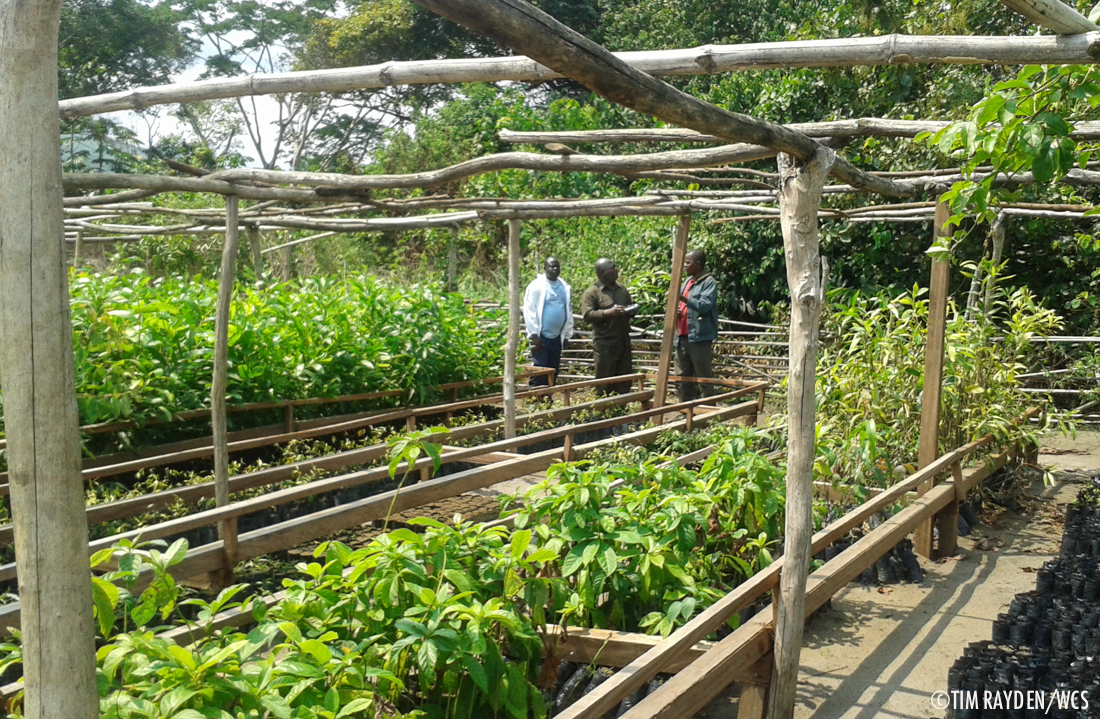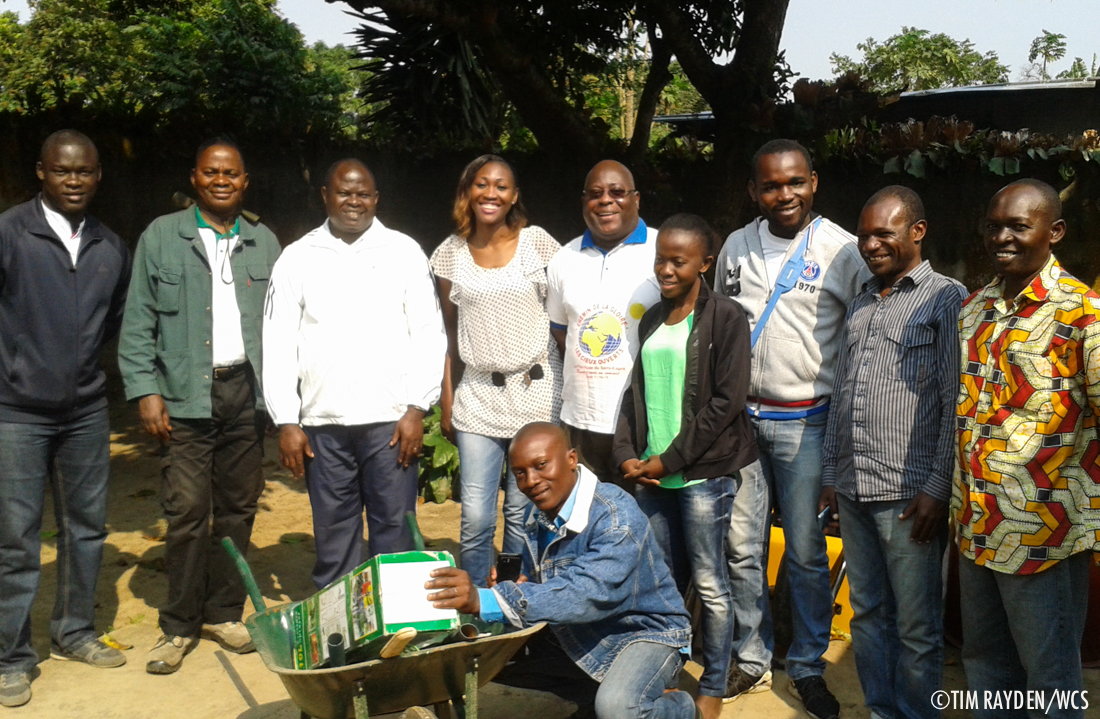
Sustainable agroforestry two years down the line
This week marks the second anniversary of a collaboration between WCS Batéké Project, and the National Afforestation Service of the Congo’s Forest Ministry. The collaboration was set up in September 2014 to promote alternative livelihoods for the populations living in the periphery of the Lefini Wildlife Reserve in central Congo.
The remarkable landscape of the Lefini reserve is a mixture of savannah and gallery forest, and supports the only known population of elephants in central Congo. However, the once-rich wildlife of the savannah lands has been depleted by un-controlled hunting, and the fertile soils of the Batéké plateau are under pressure on all sides from the expansion of agricultural activities.
”The communities involved in our agroforestry scheme are starting to see the benefits for their livelihoods. As a result they are more supportive of our conservation efforts - Florence Bianen Lefini Project Manager, WCS.
In an effort to reduce this pressure, and build support for wildlife conservation activities in the reserve, WCS supports community-based agroforestry. The scheme, which combines agricultural crops with fast growing tree species, promotes the sustainable use of the land and encourages agricultural intensification. The plantations are designed to provide short, medium and long term revenues to the participating communities, while the wood from the trees can be used as fuel or for construction. The plantations can be farmed on a continuous cycle, reducing the need to cultivate new land.
WCS provides the trees from the Batéké project’s tree nursery, and financial support to help with plantation establishment. SNR provides technical advice on the mix of tree species and crops to plant. The communities engage to maintain the trees and protect the plantations from fire. Revenues from the sale of crops and wood are shared amongst the participants while a portion of the profits are saved in a community development fund.
WCS began the project in 2014, and there are now 9 communities participating in the scheme with 30 ha of plantations established. In all there are over 200 local residents directly involved in agroforestry activities.

While we develop our support for the reserve, WCS is also working to quantify the carbon benefits of these activities. Agricultural intensification and better management of fuel wood are key elements of the national climate change strategy. Payments for reduced carbon emissions may one day provide additional revenue for the communities and help to support the management of the reserve.

